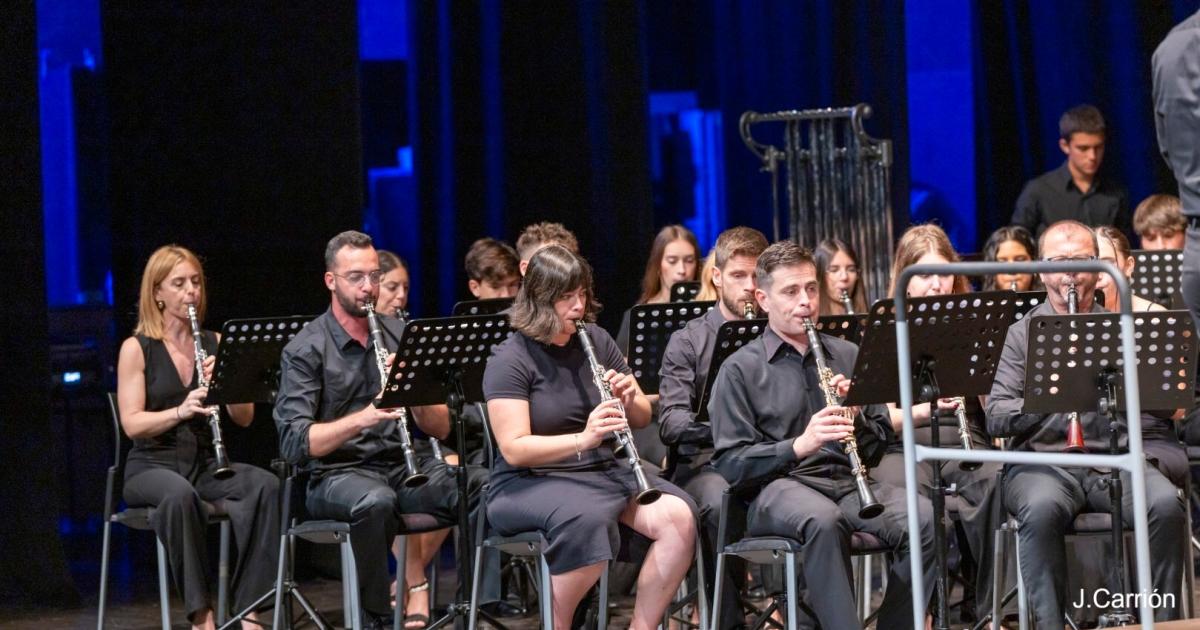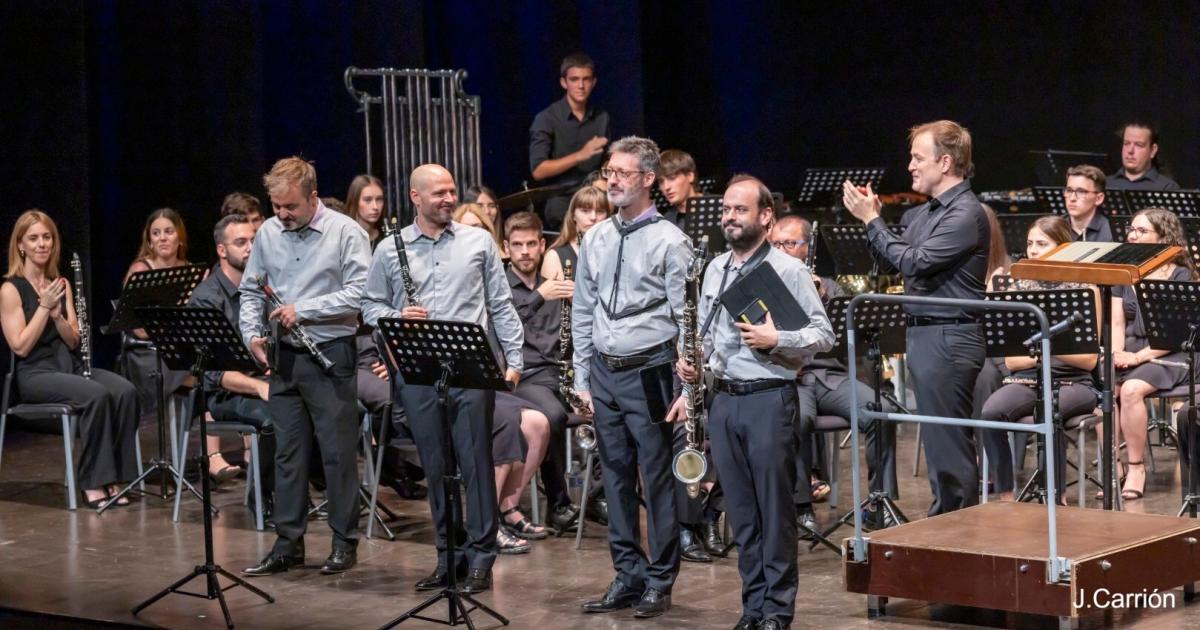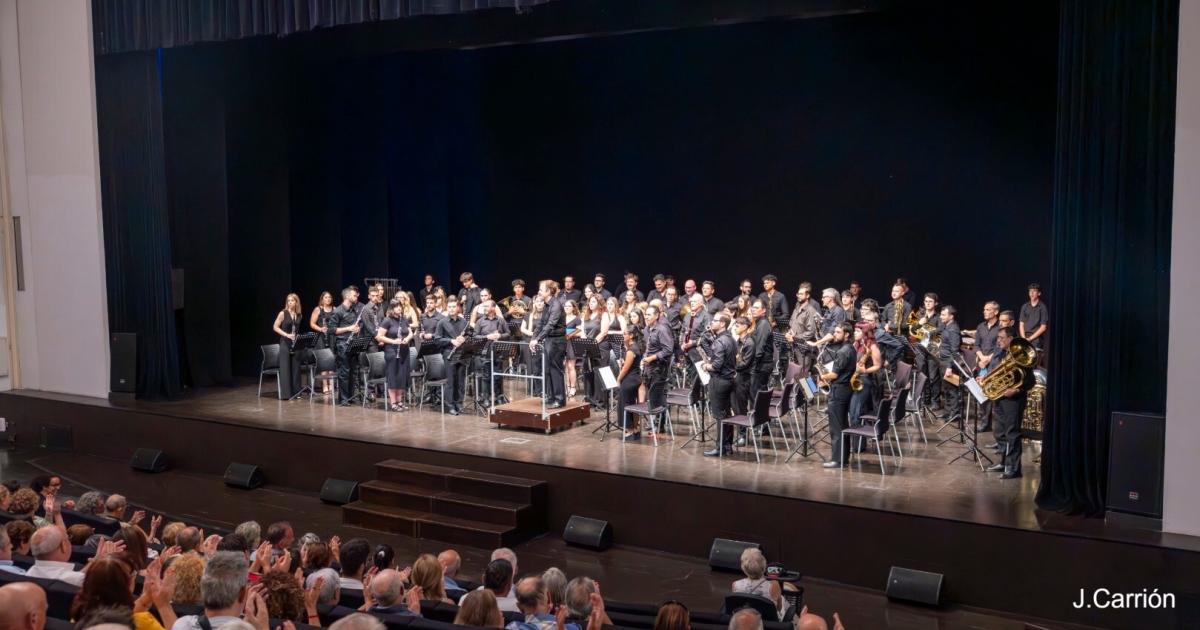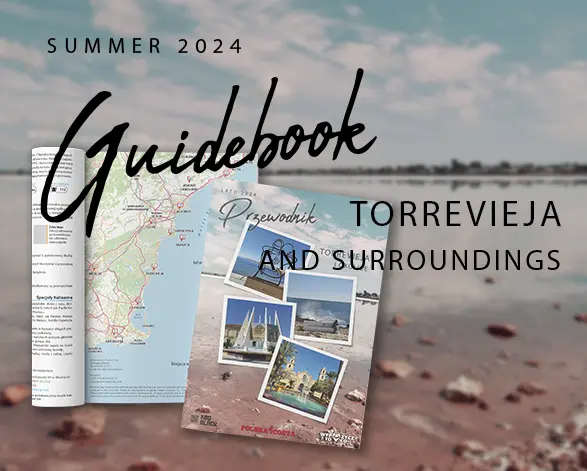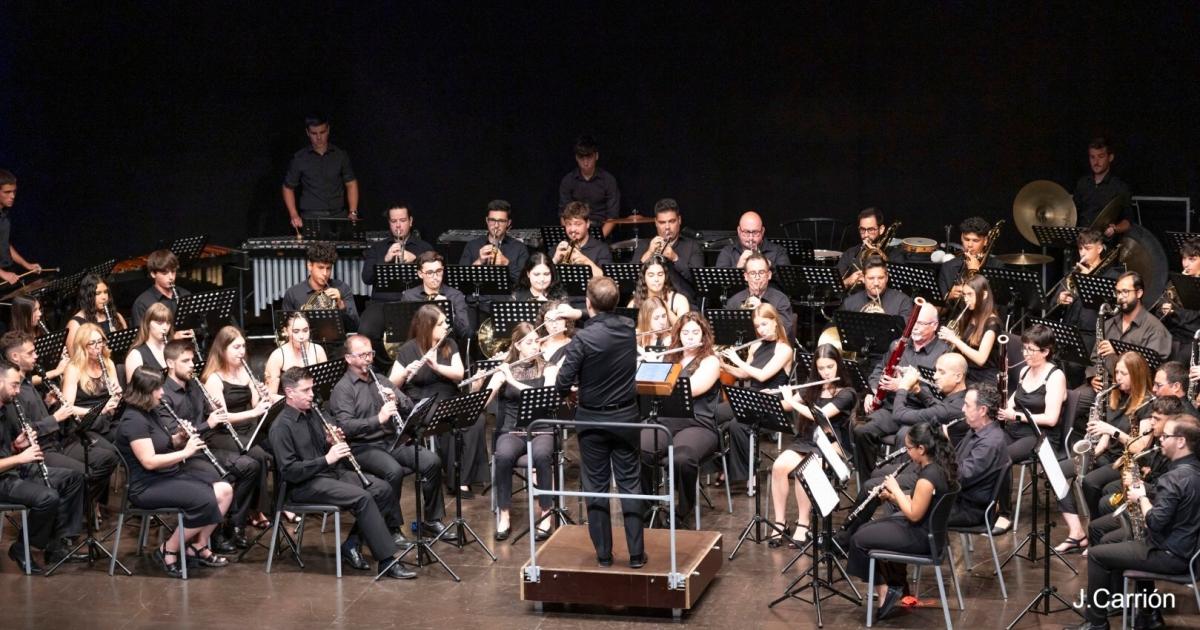
Barcelona Clarinet Players and Union Musical de Torrevieja
The brass band Unión Musical Torrevieja, under the direction of Carlos Ramon, on a truly summer Sunday noon at the Municipal Theater, presented a wonderful concert to the local audience featuring the “Barcelona Clarinet Players” quartet consisting of; Alejandro Castillo, Javier Vilaplana, Martí Guasteví and Manuel Martinez. They played simply superbly. Those who were there know that I am not exaggerating, as this performance could only be admired. A great introduction to the mood of the hot noon, was the performance by Banda Unión Musical, under the baton of maestro Carlos Ramon, of the piece “The Hounds of Spring” by Alfred Reed (1921-2005), which is an overture and serves as an overture to all that is to come.
In addition to the performance of the guests from Barcelona, the undoubted highlight of the concert was the works they performed, composed and dedicated especially for the Barcelona Clarinet Players by outstanding artists of worldwide renown. And so a work by Mexican composer Arturo Marquez (1950), “Rumba Fugata,” began the quartet's performance. In his work, the composer combines popular rhythmic South American folklore with so-called “classical” music, producing wonderful sonic results. Such a combination creates the impression of popular-entertainment music, thrilling with Latin rhythms and prevailing liveliness.
What a performance that was ?! A volcano of energy !!! It is amazing that four clarinets, of different sizes, can convey such a fascinating dose of energy and emotion. Interpretation of a wonderfully written piece, showed brilliance in communication of the ensemble from the first bars. Later, the artists impressed with incredible fluidity between the individual voices, perfectly modulated dynamics, perfectly even attack of sounds, but above all with spontaneity and exuberant energy. A huge dose of exquisitely interpreted music ... and this is only half of the performance of the artists from Barcelona.
Unión Musical, under the baton of Carlos Ramon, opened the second part of the concert with a composition by Philip Sparke (1951) entitled “The Year of the Dragon.” The three-movement composition prominently displayed the excellent musical condition of the Banda and its director, who each time prove that their energy and passion for music can only be envied. The two outer sections shone with the brilliance of rhythmic marches, contrasting with the middle section, full of poetry and reverie. The interesting composition, performed in an exemplary manner, was at the same time a prelude to another artistic display by the “Barcelona Clarinet Players” quartet, presenting a composition by Spanish composer Oscar Navarro (1981) entitled “The Musketeers.”
It is not difficult to guess that this is the story of the first part of the trilogy about the four ! musketeers of the Guard, by Alexandre Dumas. The fantasy “The Musketeers” could not have better performers. It would seem that the musicians had already managed to exhaust the range of their performance strengths in the first part, when, meanwhile, during the performance of “The Musketeers” they convinced that they still have a lot to offer. In an extremely interesting and rich-sounding composition, the chamber musicians showed off their excellent technique and virtuosity, but also their captivating musicality and timbral color of the pampered phrases. The musical message from the stage was incredibly electrifying and dynamic with great emotional depth, giving the impression that the musicians would soon will include in their interpretation .... ballet. There could be no other reaction from the audience than a standing ovation and, of course, an attractive encore by the artists - “Bachrinets” by Paquito.D'Rivera.
To sum up, we had the opportunity to participate in a masterful concert of the highest order, and to the huge success of the ensemble “”Barcelona Clarinet Players undoubtedly contributed the Unión Musical de Torrevieja under the direction of the charismatic maestro Carlos Ramón, professionally and emotionally accompanying the soloists in complex accompaniments, withdrawing sonically in moments of typical accompaniment and showing their rich sonic intensity in the so-called tutti places.


